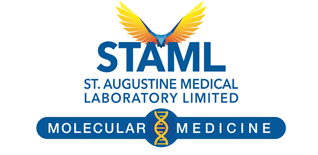Frequently Asked Questions
What is Molecular Diagnostics?
Molecular Diagnostics seeks to examine the origin of diseases at the molecular level through the study of DNA. It utilizes core molecular biology techniques such as Nucleic acid isolation, Polymerase Chain Reaction (PCR), Next Generation Sequencing (NGS) and Short Tandem Repeat (STR) analysis to determine the root cause of various conditions. These conditions may include infectious diseases, inherited conditions and cancer.
How is molecular diagnostics testing different from conventional methods of testing?
Molecular Diagnostics uses highly advanced laboratory techniques to detect diseases at the cellular level and therefore allows thorough investigation of human genes. This is the most sensitive and specific testing method as it amplifies and detects TARGET genetic material in the investigation of disease.
Conventional testing methods are not as specific or sensitive as molecular methods as they do not target genetic material specific to the disease but rather relies on the presence of less sensitive and less specific targets.
Which testing method is best?
This is no one-word answer and would heavily depend on an individual’s circumstances surrounding the need for laboratory investigations. It Is suggested that one should consult his/her consulting physician about any medical concerns in order for the best decision to be made his/her testing needs.
We are also happy to answer any questions and concerns that may arise. Please feel free to email us at molecularmedicine@staml.net or call us at +1868 645-1DNA. We are located at 15 Boothman Drive, St. John’s Road, St. Augustine.
How do I know if services offered can be useful to me?
Our testing menu is large and targets many diseases. We strongly suggest that one should consult his/her consulting physician about any medical concerns in order for the best decision to be made his/her testing needs.
We are also happy to answer any questions and concerns that may arise. Please feel free to email us at molecularmedicine@staml.net or call us at +1868 645-1DNA. We are located at 15 Boothman Drive, St. John’s Road, St. Augustine.
Can you tell if I have cancer?
We employ Next Generation Sequencing (NGS) to identify genetic mutations associated with various cancers. We are able to detect familial cancer mutation carriers and de novo mutations. Additionally, using this technology, a targeted therapy approach can be devised following a diagnosis.
I’ve been diagnosed with cancer. How can STAML, Molecular Medicine help me?
Next Generation Sequencing can determine the specific genetic mutations associated with your cancer diagnosis. This would allow a very specific, targeted approach to treatment.
Additionally, genetic analysis can be performed on family members including but not limited to siblings, children and cousins. This can determine each person’s risk of similar condition.
It Is suggested that one should consult his/her consulting physician about how NGS can help you to determine your risks. We are also happy to answer any questions and concerns that may arise. Please feel free to email us at molecularmedicine@staml.net
or call us at +1 868 645-1DNA. We are located at 15 Boothman Drive, St. John’s Road, St. Augustine.
Certain diseases run in my family; I want to know my risk.
We understand how important this is. Using Next Generation Sequencing (NGS) can screen family members for targeted genetic variations that can cause disease. It Is suggested that one should consult his/her consulting physician about how NGS can help you to determine your risks. We are also happy to answer any questions and concerns that may arise. Please feel free to email us at molecularmedicine@staml.net
or call us at +1 868 645-1DNA. We are located at 15 Boothman Drive, St. John’s Road, St. Augustine.
I’m pregnant, what exactly is non-invasive prenatal testing (NIPT) ?
NIPT allows the least invasive form of pre-natal testing to ensure that your baby is healthy. By drawing a single blood sample from an expectant mother we can analyze fetal DNA. We can determine your baby’s risk of genetic abnormalities associated with an extra chromosome such as Down Syndrome (Trisomy 21), Edward’s Syndrome (Trisomy 18) and Patau’s syndrome (Trisomy 13). We can also investigate any chromosomal disorders caused by changes to the X, Y sex chromosomes.
This method of investigation is safe and has highest accuracy therefore allowing the highest chance of an accurate test result- This greatly reduces your chance of being sent for an unnecessary amniocentesis.
This test can be performed from as early as 10 weeks in your pregnancy.
We highly suggest discussing this option of NIPT with your obstetrician.
Can a paternity test be performed before the baby is born?
Yes. A paternity test can be performed from as early as 10 weeks into the pregnancy. This is called Noninvasive prenatal paternity test (NIPP): This test analyzes fetal DNA found in a pregnant woman's blood during the first trimester.
Is STAML, Molecular Medicine an accredited diagnostic laboratory?
Yes. Please see more information here.
What is “NGS”?
NGS is an acronym for “Next Generation Sequencing” which is a technology used to determine the DNA sequence of an individual in order to study their genetic variation. It simultaneously sequences multiple strands of DNA at once allowing greater speed, throughput and accuracy as compared to previous methods.
Is sample collection invasive or painful?
Based on the test requested, different sample types can be used. Usually, a simple blood sample or cheek swab would be required for certain tests. In other circumstances, tissue specimens would be required. Sample types would be discussed before testing is performed .
Will my genetic information remain confidential?
Your genetic information remains 100% confidential and will not be shared with any third party.
